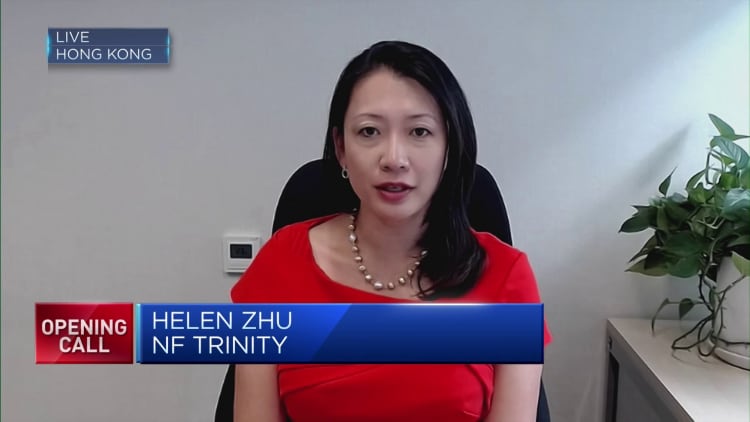Hello, lovelies, and welcome to Week in Review (WiR), TechCrunch’s regular newsletter that recaps the week in tech. For many folks, this workweek was a day shorter, thanks to the Juneteenth observance on Monday. But plenty happened.
We’ve got coverage on the OceanGate tragedy, and we’ve continued to closely track the Reddit API controversy — which shows no signs of abating. Elsewhere, TC has a full review of the new Google Pixel Tablet (spoiler alert: the bundled dock is a major highlight), and we have the skinny on Microsoft’s quantum plans and more.
If you haven’t already, sign up here to get WiR in your inbox every Saturday. Then read on for the week’s digest.
Most read
OceanGate fired a whistleblower: The director of marine operations at OceanGate, the company whose submersible went missing Sunday on an expedition to the Titanic in the North Atlantic, was fired after raising concerns about its first-of-a-kind carbon fiber hull and other systems before its maiden voyage, according to a court filing in a 2018 lawsuit.
Hackers threaten to leak Reddit data: Hackers are threatening to release confidential data stolen from Reddit unless the company pays a ransom demand — and reverses its controversial API price hikes. In a post on its dark web leak site, the BlackCat ransomware gang, also known as ALPHV, claims to have stolen 80 gigabytes of compressed data from Reddit during a February breach of the company’s systems.
Reddit protests continue: In more Reddit news, multiple subreddits are adopting alternative methods of protesting the aforementioned API changes, such as publishing only one kind of post, changing the topic in focus and days when the community turns private. Many of these communities took part in a “blackout” from June 12–14 to protest the API rule changes, which could effectively kill a host of third-party apps.
Google Pixel Tablet review: Brian reviews the new Pixel Tablet, Google’s first attempt in a minute at an Android-powered device with a tablet form factor. The verdict? The so-so slate is greater than the sum of its parts with the addition of a bundled smart home dock. Read on for the rest of his impressions.
Microsoft gets serious about quantum: This week, Microsoft announced its roadmap for building a quantum supercomputer, using the topological qubits the company’s researchers have been working on for quite some time. There’s still plenty of intermediary milestones to be reached. But the company believes that it’ll take fewer than 10 years to build a quantum supercomputer using these qubits.
WhatsApp gets automatic silencing: WhatsApp has introduced a new feature to automatically silence calls from unknown numbers. It comes after multiple customers in India, the chat app’s biggest market with more than 500 million users, complained about an increase in spam calls over the past year.
Marvel’s AI art controversy: Marvel’s latest series, “Secret Invasion,” made its debut on Disney+ this week — sparking backlash after it was confirmed that the intro sequence was AI-generated. Method Studios, the VFX company responsible for the graphics, told The Hollywood Reporter, “No artists’ jobs were replaced by incorporating these new tools” — but that didn’t stop many artists from taking to Twitter express their frustrations.
Board members quit Byju’s: On Thursday, global giant Deloitte quit as the auditor of Byju’s and three board members resigned from the most valuable Indian startup, sending a shock wave through the industry a year after the Indian firm’s tardy financial reporting attracted global scrutiny.
Audio
Need a podcast to pass the commute — or just a lazy Sunday afternoon? TechCrunch has you covered. There’s bound to be something that appeals in TC’s growing audio content stable.
This week’s episode of Found featured Web Sun, the co-founder and president of Komodo Health, a startup that uses data to create a comprehensive map of the U.S. healthcare system. Web opened up about what drove him to entrepreneurship and how mutual friends introduced him to his co-founder, thinking they’d get along (little did they know!). He also talked about navigating fundraising during the bull market and layoffs — a timely topic to be sure.
TechCrunch+
TC+ subscribers get access to in-depth commentary, analysis and surveys — which you know if you’re already a subscriber. If you’re not, consider signing up. Here are a few highlights from this week:
Europe’s and Israel’s unicorns: Accel partner Harry Nelis writes about how, in the last two decades, we’ve seen a wealth of strong founders and operators emerge across Europe and Israel, building innovative products and category-defining unicorn companies that are now competing on the global stage.
Coinbase, the next super app: As the crypto markets continue to face uncertainty, Coinbase’s CEO Brian Armstrong sees greater potential for the digital asset ecosystem to grow. In the next five to seven years, Armstrong’s vision for Coinbase includes turning it into a “super app,” referring to apps like WeChat and Alipay, which are used for messaging, commerce, banking, loans, payments and even for ordering food.
AI infiltrates crowdsourced work: A new paper from researchers at Swiss university EPFL suggests that between 33% and 46% of distributed crowd workers on Amazon Mechanical Turk appear to have “cheated” when performing a particular task assigned to them, using tools such as ChatGPT to do some of the work. If that practice is widespread, it may turn out to be a pretty serious issue, Haje writes.
Get your TechCrunch fix IRL. Join us at Disrupt 2023 in San Francisco this September to immerse yourself in all things startup. From headline interviews to intimate roundtables to a jam-packed startup expo floor, there’s something for everyone at Disrupt. Save up to $600 when you buy your pass now through August 11, and save 15% on top of that with promo code WIR. Learn more.


























































